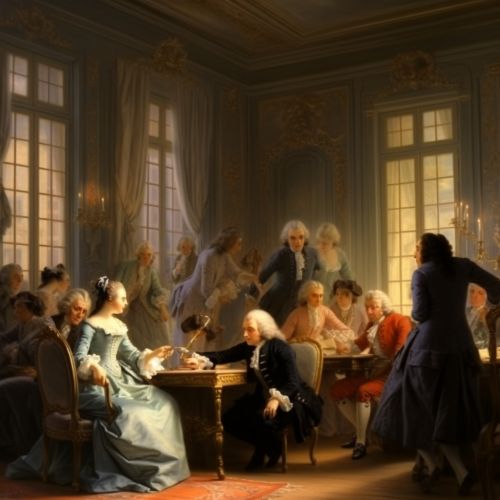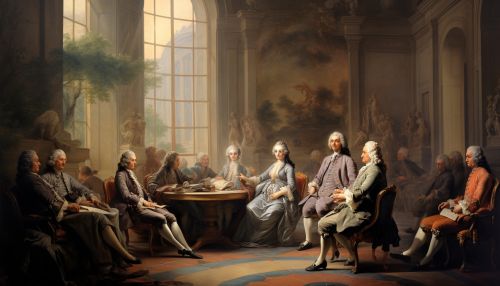Enlightenment
Overview
The Enlightenment, also known as the Age of Enlightenment, was an intellectual and philosophical movement that dominated the world of ideas in Europe during the 17th and 18th centuries. The Enlightenment emerged out of a European intellectual and scholarly movement known as Renaissance humanism and was also preceded by the Scientific Revolution and the work of Francis Bacon, among others. Its participants thought they were illuminating human intellect and culture after the "dark" Middle Ages.
Historical Context
The Enlightenment took place in a historical context marked by significant social and political changes. The 17th century saw the creation of the modern nation-state, as sovereign power became increasingly centralized in the hands of the monarch. The 18th century, on the other hand, was characterized by movements of political and social reform, as the traditional authority of the monarchy and the Church were increasingly challenged. The French Revolution, which broke out in 1789, can be seen as a culmination of these Enlightenment ideals.
Key Concepts
The Enlightenment was marked by an emphasis on the scientific method and reductionism along with increased questioning of religious orthodoxy—an attitude captured by the phrase Sapere aude, "Dare to know". Immanuel Kant, a central figure of the Enlightenment, argued that one must dare to know, that skepticism and questioning are above all a philosophical duty. He also argued that an individual's knowledge and abilities are limited to their experience and perception.
Major Figures
Several individuals were particularly influential in the Enlightenment. These include, among others, John Locke, who is often credited with founding liberalism as a distinct tradition; Voltaire, who believed in the separation of church and state; Jean-Jacques Rousseau, who wrote on education and human nature; and Adam Smith, who is often considered the father of modern economics.
Impact and Legacy
The Enlightenment has had a profound impact on the cultural, political, and economic life of the West. It has been credited with the idea of the separation of church and state, the development of liberal political thought, and the creation of the modern, bureaucratic state. In the realm of culture, the Enlightenment has been credited with promoting the bourgeois public sphere, the civilizing process, and the spread of literacy.
Criticisms
The Enlightenment has been subject to criticism from various quarters. Some critics argue that the Enlightenment's emphasis on reason has led to the neglect of other important human faculties such as emotion and imagination. Others argue that the Enlightenment's faith in progress and human perfectibility has been misplaced, leading to the horrors of 20th-century totalitarianism.
See Also
Renaissance humanism Scientific Revolution French Revolution Immanuel Kant John Locke Voltaire Jean-Jacques Rousseau Adam Smith


